Recycling and Sustainable Development As with all materials, there are environmental impacts arising from mining and processing. Careful selection of materials and products can conserve resources, reduce impacts of production, and enhance occupant health and comfort. The properties that aluminum, steel, and plastics offer, are found in products used by society that are durable, corrosion resistant and more likely to be recycled at the end of their usage life. If collected at the end of their useful life, they can be fully recycled such that their value to society is on-going and pressure on the earth's resources is reduced.
ANODIZING EPCO anodizes several of its aluminum products. Anodizing's environmental friendliness and relative safety are among its best properties. Anodizing uses simple water-based chemicals that can be treated easily and that release no harmful by-products. The liquid by-products are recycled and returned to the process through a closed-loop system.
WHAT IS ANODIZING Anodizing is an electrochemical process that thickens and toughens the naturally occurring protective oxide. The resulting finish, depending on the process, is the second hardest substance known to man, second only to the diamond. The anodic coating is part of the metal, but has a porous structure which allows secondary infusions, (i.e. organic and inorganic coloring, lubricity aids, etc.).
- Solid by-products can be isolated and diverted for use in the manufacture of alum, baking powder, cosmetics, newsprint, fertilizer and water purification systems.
- The U.S. Environmental Protection Agency (EPA), which heavily regulates the production and use of solvent-based paints and flouropolymer finishes containing volatile organic compounds (VOC's), regards anodizing as an environmentally friendly process.
POWDER COATING EPCO uses powder coating in the production of many products. The powder coating process offers an environmentally friendly advantage of being virtually pollution-free! Unlike Liquid paint or lacquer coating, no solvents are used, so only negligible amounts of volatile organic compounds (VOC's) are released into the air. Unused or over-sprayed powder can be recovered and disposed of easily and safely.
WHAT IS POWDER COATING Powder coating is a completely dry finishing process. Finely ground particles of pigment and resin are electrostatically charged and sprayed onto products to be coated. The parts to be coated are electrically grounded so the charged particles adhere to them until melted and fused into a solid coating in a curing oven. The result is an attractive, durable, high quality and long-lasting finish.
- Provides attractive, minimum-maintenance, highly durable exteriors, roofs, curtain walls, ceilings, floors, escalators, lobbies and staircases in skyscrapers and commercial buildings throughout the world.
- Has revolutionized the construction of computer hardware, exhibit displays, scientific instruments, and a constantly expanding array of home appliances, consumer products, and building materials.
ALUMINUM Recycling an aluminum can saves an energy equivalent of six ounces of gasoline. In 2000, Americans recycled 54.8 million aluminum cans, saving the energy equivalent of 2.58 billion gallons of gasoline. Had we recycled the other 46 billion cans we used that year, we could have saved another 2.15 billion gallons of gas.
STAINLESS STEEL Stainless steel is by far the largest user of nickel. It takes approximately 60% of the annual world production of this primary nickel. It also is the largest user of nickel-containing scrap. Approximately 50% of the nickel in new stainless steel comes from nickel-containing scrap. Largely due to their heat- and corrosion- resistance, stainless steels and nickel alloys are used in processes that reduce toxic emissions, increase energy efficiency and help to produce cleaner drinking water and safer food.
WHY METALS ARE RECYCLED Metals are recycled because they are valued and because most of them share inherent quality of recyclability. Metals are part of the periodic table. They are elements that are part of the natural environment. They cannot be created or destroyed, only concentrated or dispersed through natural processes or through human activity. Nature and society both recycle metals, the difference being how and the speed at which this happens. Because metals are valued, an infrastructure for gathering and processing exists. While society is more likely to see metal recycling today as an environmental activity, metal recycling has existed for thousands of years as an economic activity.
ECONOMICS OF RECYCLING Non-ferrous metals are among the most intensively recycled materials in modern economic life. This situation is not the result of recent political encouragement or life style changes. It is the result of centuries of economic development. During both first use (that is, during fabrication) and end use (that is, in the life of the finished product), non-ferrous metals retain their basic properties and thus retain their utility value to a much larger extent than is the case with most industrial materials. At each stage of the production and use process, the non-ferrous metal may be returned to the supply chain without significant loss of its intrinsic properties. In other words, the metal keeps its value; it does not degrade; if contaminated, it can be restored to its original quality if that is desired.
PLASTIC The production of plastic for use by American and worldwide consumers was the result of new product experimentation by the petrochemical industry during and after World War II. Since then, plastics have become ubiquitous on our nation’s store shelves and around our homes. Over 1.3 billion pounds of post-consumer plastics are recycled annually in the U.S. The U.S. annually recycles 18% of all of its plastic bottles and containers and 36% of its soft drink bottles. Making plastics from recycled material saves up to 80% of the energy used to make them from virgin raw materials.




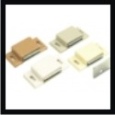

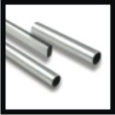
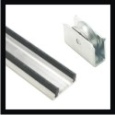
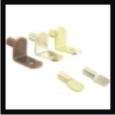
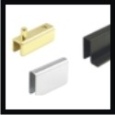
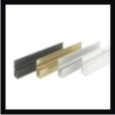
 EPCO has long been committed to helping all design and construction professionals incorporate sustainable practices in their work. We are proud that many of our products have less of an impact on the environment because they are recyclable, contain recycle content or are finished in an environmentally friendly process.
EPCO has long been committed to helping all design and construction professionals incorporate sustainable practices in their work. We are proud that many of our products have less of an impact on the environment because they are recyclable, contain recycle content or are finished in an environmentally friendly process.